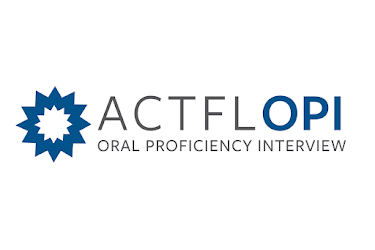If you're aspiring to become a doctor, the MCAT Exam (Medical College Admission Test) is one of the most important milestones in your journey. This standardized test plays a crucial role in determining whether you’ll gain admission to the top medical schools. Achieving a high score on the MCAT Exam is essential, but it's no easy feat—it requires careful planning, focused preparation, and strategic thinking.
In this blog, we’ll dive into the best ways to ace the MCAT Exam and how working with overseas education consultants can help you navigate the process of applying to medical schools, especially if you plan to study abroad.
Understanding the Structure of the MCAT Exam
Before jumping into preparation strategies, it’s important to fully understand what the MCAT Exam entails. The test is divided into four sections:
- Biological and Biochemical Foundations of Living Systems
- Chemical and Physical Foundations of Biological Systems
- Psychological, Social, and Biological Foundations of Behavior
- Critical Analysis and Reasoning Skills (CARS)
Each section is designed to evaluate different aspects of your scientific knowledge, problem-solving abilities, and critical thinking. Having a clear understanding of these areas will allow you to target your preparation effectively.
MCAT Exam Strategies for Success
Create a Study Plan Early
The MCAT Exam is not something you can cram for a few weeks before the test. Ideally, you should begin preparing six to nine months in advance. Start by assessing your strengths and weaknesses in each of the exam sections. Once you know which areas need the most work, create a comprehensive study plan that includes regular practice tests, study sessions, and review periods.
Some students choose to work with overseas education consultants who can help them craft personalized study schedules, especially if they plan to study abroad in countries where the MCAT Exam is required for medical school admissions.
Practice with Full-Length MCAT Exams
Full-length practice exams are your best friend when preparing for the MCAT Exam. Taking the test under timed conditions simulates the real exam environment, helping you build the stamina and mental endurance needed for a test that lasts over 7 hours. After each practice test, analyze your performance to identify areas for improvement. Many overseas education consultants offer access to official MCAT practice exams, ensuring you’re using the most reliable materials available.
Master Critical Analysis and Reasoning Skills (CARS)
The CARS section is often considered the most challenging part of the MCAT Exam, as it tests your ability to analyze complex texts, identify arguments, and draw conclusions. Since there are no "content" areas to study for CARS, the key to success is practice. Read a variety of complex texts, including scientific journals, philosophy papers, and literature. Focus on understanding the structure of arguments and improving your ability to interpret difficult passages.
Review Core Scientific Concepts
While the MCAT Exam doesn’t necessarily test advanced scientific knowledge, it does require a solid understanding of undergraduate-level biology, chemistry, physics, and psychology. Dedicate time to reviewing core concepts in each of these areas. Utilize online resources, textbooks, and video tutorials to reinforce your knowledge.
Overseas education consultants can often provide specialized resources and tutoring services, helping you strengthen your foundation in these subjects.
Focus on Test-Taking Strategies
In addition to content review, focus on honing your test-taking strategies. The MCAT Exam is notorious for its tricky question styles, including multiple-choice questions that have more than one seemingly correct answer. Practice eliminating wrong choices and managing your time effectively during the test. Remember, leaving a question unanswered is worse than guessing!
Take Care of Your Mental and Physical Health
Preparing for the MCAT Exam can be overwhelming, but it’s important not to neglect your mental and physical well-being. Incorporate breaks into your study schedule, stay physically active, and ensure you’re getting enough sleep. Your performance on test day will be significantly better if you’re well-rested and stress-free.
The Role of Overseas Education Consultants
If your goal is to attend medical school in a country like the U.S. or Canada, overseas education consultants can be invaluable in your journey. They offer tailored advice on medical school admissions, help you prepare for the MCAT Exam, and provide guidance on your study abroad applications. From selecting the right schools to drafting compelling personal statements, overseas education consultants are there to support you every step of the way.
Conclusion
Success on the MCAT Exam requires careful preparation, consistent practice, and the right mindset. By following the strategies outlined above and working with overseas education consultants, you can significantly improve your chances of acing the exam and gaining admission to top medical schools. Whether you’re looking to study abroad or apply to a local program, your journey to becoming a doctor starts here.
Also Read:

























